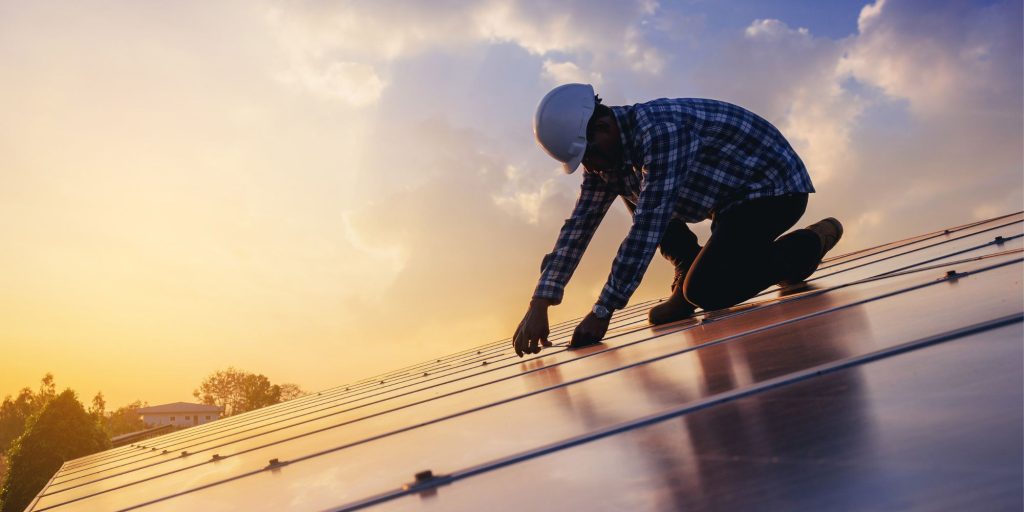New report commissioned by DRA exposed Black Hills Energy’s faulty arguments for charging homeowners extra fees for installing rooftop solar.
In late 2023, Dakota Rural Action used data to successfully fight a proposed fee on rooftop solar in the Black Hills area. In 2021, the investor-owned utility, Black Hills Energy, proposed a new tariff for their customers who had installed solar panels on their property. Black Hills Energy (BHE) claimed that customers who generate their own electricity cost the rest of their customers more money due to increased infrastructure expenses. In addition to this tariff, the company would only buy back excess energy for less than 25 percent of the market price. DRA released a report titled Empowering Solar Energy in South Dakota, debunking BHE’s claims.
South Dakota ranks last in the nation for installed solar capacity, and this proposal would have further limited the economic viability of installing solar panels for homes and small businesses. When BHE customers learned of the proposed tariff, they fought back and filed an intervention with the public utilities commission (PUC). The PUC did not approve the proposed tariff and instead directed BHE to find a solution with the intervenors.
The utility company claimed that customers with solar panels weren’t paying their fair share of the total infrastructure costs and therefore needed to pay an additional fee to the company. Dakota Rural Action members knew that was a faulty argument and hired Crossborder Energy to conduct a study of the true costs and benefits of distributed solar energy within the state.
Keep up to date with grassroots organizing in the West with WORC’s newsletter.
Adding to the growing pool of evidence, “Empowering Solar Energy in South Dakota” found that distributed solar energy generation does not cost other customers more. In fact, over the long run, distributed solar reduces the cost of electricity for all customers. As a result, BHE does not need to change their billing policy (add new tariffs) for customers with solar. Those customers are a cost-effective resource for the energy company, providing a 2.2 cent per kilowatt hour benefit from their household solar over 25 years. “It’s a net benefit to them to have more behind-the-meter solar under their system,” Rick Bell, a Dakota Rural Action member and one of the intervenors in the case, said in an interview with South Dakota Public Broadcasting. He went on to say that a fair net metering policy would be a win-win for both the company and homeowners. “We’re working toward making that happen.”
Unsurprisingly, the report also found that South Dakota’s lack of a net metering policy created unfavorable economic conditions for homeowners interested in distributed solar generation. This helps explain why South Dakota ranks last in solar adoption. Importantly, the report also concluded that a full retail net metering policy would be cost-effective within BHE’s service territory. This is further evidence that rooftop and small-scale solar must be a key pillar of our energy future and state policies should reflect the benefits of solar power by compensating renewable energy producers at the full retail rate.
Dakota Rural Action members who commissioned the study recently delivered it to BHE. Shortly thereafter, BHE abandoned their plans for an additional tariff on solar panel owners. This is a huge win for Dakota Rural Action members, the intervenors, and all customers within BHE’s service area.
Learn more:
Co-Op Members Lead the Fight for Rural Clean Energy
WORC Groups Fight For Clean, Renewable Energy in the West
Montana Utility Uses its Influence to Shut Down Roof-top Solar

Yes, I want to help WORC elevate Western voices and hold decision-makers accountable!





